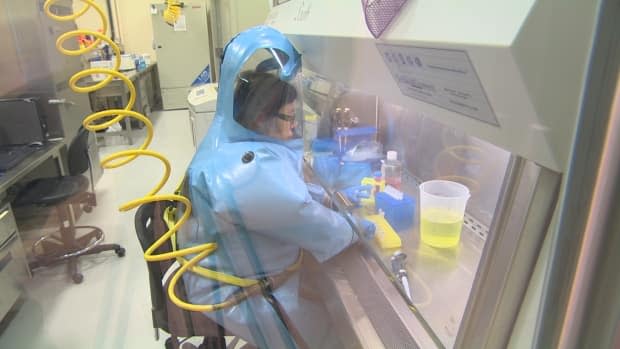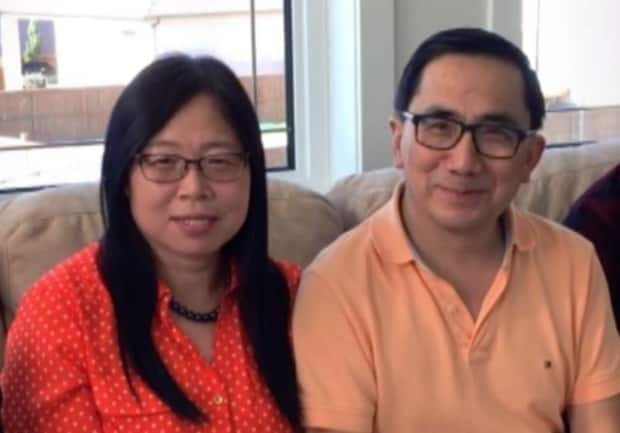University suggests faculty avoid trips to China amid RCMP probe into lab researchers
The University of Manitoba is recommending faculty avoid unnecessary travel to China in light of an RCMP investigation involving two microbiology researchers and a possible "policy breach" at the National Microbiology Lab in Winnipeg.
Sources say Dr. Xiangguo Qiu, her husband Keding Cheng and her students from China were escorted from the level-4 lab on July 5, although the Public Health Agency of Canada (PHAC) will only confirm a review is underway into an administrative matter and possible "policy breach."
RCMP Manitoba received a referral from PHAC on May 24. A spokesperson says there is no threat to public safety and will not comment further while the investigation is ongoing.
On Monday, the University of Manitoba ended the non-salaried appointments of both Qiu and Cheng, pending the police investigation. It has re-assigned an unknown number of graduate students working with Qiu, an adjunct professor in the department of medical microbiology.
The university has also circulated a memo to faculty, which reads in part:
"Faculty members are encouraged to avoid all unnecessary travel to China (at this time) in light of our evolving relationship with China.
The memo, sent by the office of Jay Doering, vice-president of research and international, added there are concerns because the university is being named in media coverage there.
It had already suspended student and non-academic staff travel to China earlier this year when the federal government recommended a high degree of caution in traveling to China "due to the risk of arbitrary enforcement of local laws."

Canadian businessman Michael Spavor, who worked in North Korea, and former Canadian diplomat Michael Kovrig were picked up separately in December, shortly after the RCMP arrested Huawei chief financial officer Meng Wanzhou in Vancouver.
The two men are accused of acting together to steal state secrets.
China has also stopped importing some Canadian commodities since Wanzhou's arrest.
"Until more information is available, university-related student and non-academic staff travel to areas with changing travel advisories, such as China, is to be postponed. Faculty may wish to limit travel as well," the university memo reads.
"Our hope is that the situation will be resolved soon, and that this will not impact our many valued partnerships with Chinese institutions."
University spokesperson John Danakas declined further comment, saying: "With an RCMP investigation ongoing, the university won't be able to provide more information at this time."

The travel restrictions seem to be excessive caution and may actually harm relationships, said Gordon Houlden, director of the University of Alberta's China Institute in Edmonton.
However, he can understand why the university would make them.
"If you're an academic researcher and you're involved in research on really sensitive issues that would include Tibet, Xinjiang, leadership politics, religion in China, I would only do that in close conjunction with a Chinese university. So you're working with Chinese scholars, not freelancing," Houlden said.
And while he also understands why PHAC, the RCMP and other agencies don't want to comment before the investigation is complete, Houlden said it would be helpful to provide a little more information, "because without that, people begin to assume the worst and the worst may not be true."
"What was the motivation? Was it an oversight? Was it a technical breach? Was it industrial espionage of the first order? Was it part of an organized plot, or did someone just send some research notes to a fellow researcher that was perhaps a technical breach but nothing more?" he asked.
"We're left guessing, and clarity would help in terms of reassuring some people or at least being factual and accurate."

Qiu is a medical doctor and virologist who helped develop ZMapp, a treatment for the deadly Ebola virus. It was given to two infected medical missionaries during the 2014 Ebola outbreak in Liberia, resulting in a full recovery.
Qiu received her medical degree from Hebei Medical University in 1985 and came to Canada for graduate studies in 1996. She joined the NML's special pathogens program in 2003.
Cheng is a biologist who has also done work on Ebola and has published research papers on HIV infections, Severe Acute Respiratory Syndrome (SARS), E. coli infections and Creutzfeldt-Jakob Syndrome.
Neither researcher could be reached for comment.
The level-4 virology facility — the only one in Canada and one of only a handful in North America — is equipped to work with the most serious and deadly human and animal diseases, requiring the highest level of containment.
More from CBC Manitoba:


